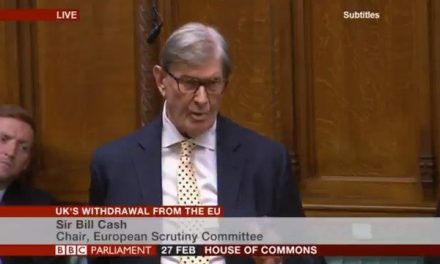Ask European investors about what lies behind the cause of the current equity and bond market mess and you can readily expect to receive a very wide range of answers. As likely as not one will be to blame the mess on a combination of Greece deficit and bailout costs together with events in the US. Some, particularly those in the anti euro camp would blame poor handling of the deficit crisis by the European Central Bank, the European Union and that prospect of contagion. But had you asked the same question of a typical US investor during last evening one of several likely answers that you might well have heard as reasoning yesterdays’ New York market rout would be to blame it on French banks and the fear that France might soon lose its ‘AAA’ rating. Some would add in the natural fear of recession and double-dip and almost all would lay claim to a view that expressed disdain over the decision by Standard & Poor to remove the US ‘AAA’ rating to ‘AA+’. I suspect that if you were to ask the same question of economics professors at of the most highly regarded Michigan, Washington, Stanford, Yale, Columbia or Harvard University’s as likely as not they will agree with all the above but conclude that the bottom line cause of the confidence crisis is the failure of western politics.
The failure of US and European politicians to come to terms with the idea that for too long they have lived beyond their means and that the system of running long term government deficits was at some point bound to collapse has raised eyebrows across the globe. In Europe whilst talk of France losing its ‘AAA’ rating was quickly dispelled by the three hapless US rating agencies sufficient damage was apparently done by the rumour to lead markets down a path of inevitable conclusion that not even the mighty France can afford to be involved in more bail outs. Rumours are of course a natural part of a dysfunctional and irrational market – just the sort of market that we have got right now.
Next year France goes to the polls (presidential election followed by legislative elections is the normal practice) and whilst I am certainly not a betting man I would not consider Nicholas Sarkozy’s chances of being re-elected should he so choose to put himself forward again as anything better than very slim. German voters will get their chance to tell Chancellor Angela Merkel exactly what they think of the Euro and the EU at federal elections due in 2013. The possible result of that election is clearly more difficult to call particularly given that Chancellor Angela Merkel has made such a huge song and dance about further German involvement in the bailing out of failed European nation states. Having said that so far Germany has played the game in providing its share of whatever funding has been required for Greece, Ireland and Portugal and given that existing Eurozone rules call do not allow for members to opt out Germany has needed to cough up. Inevitably more voices are now being raised about the effect of bail out costs on Germany – a nation that after all is still taxing its people to cover vast unifications costs.
But if the problems of Europe, the European Union and Eurozone are manifest in terms of deficits and debt they are nothing to the $14.3 trillion (current) level of indebtedness to foreign governments and all the others both nationally and internationally that hold US Treasuries. The way that addressing the deficit problem was handled by the President and by Congress has not only appalled domestic investors but also almost all of us watching wherever we are in the world. This is not the way to address a situation that was clearly unsustainable. I am as usual indebted to my friends at Capital Alpha Partners for informing me that yesterday in Washington DC the first nine members were chosen for the Budget Control Act joint/select committee which is tasked to agree a process aimed at cutting close to $2 trillion off the long term deficit by Thanksgiving (November 24th). Good news perhaps? Not really! Whilst it is not possibly at this stage to say that the Committee might eventually succeed or fail in its task my personal fear is that as ‘House’ and ‘Senate’ leaders have opted to place “partisan loyalists on the panel rather than members who might be swayed to cross the divide over taxes and entitlements” leads me to conclude that chances of success are very low. That is not to necessarily suggest that come Thanksgiving there might not have been tacit agreement by the Committee over which departments might be intended to suffer a slash and burn mentality approach on costs but it does mean that scope to conclude arrangements that can find their way through Congress have probably slimmed.
Commenting on markets at the mid way stage of the day in such volatile and fragile conditions is a futile and meaningless experience so I won’t do it here. Suffice to say that having now also entered a stage when rationale argument has been joined in equal measure by its irrational cousin that no solution to what ails us in the west can occur until our hapless leaders accept that politics must take second place to reality meaning that we accept that raising taxes must be a part of any option to bring down deficits. To get ourselves out of this mess requires barriers to be broken down – barriers that allow those that government has rightly tried to support to over expect. Indeed, the problem that we are all facing and that has built up in the west over the years may be best described as a gross over expectation of what government can and should provide.
Howard Wheeldon is the Senior Strategist at BGC Partners

